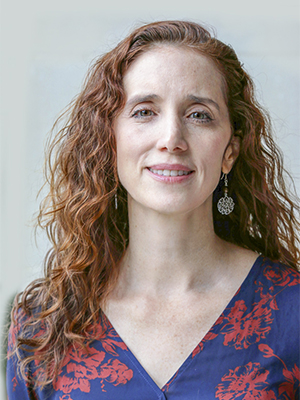
K.J. Bannan Photo by Suz Redfearn
I WENT TO NEARLY EVERY DOCTOR’S APPOINTMENT with my mother during the 20 months she was treated for stage IV lung cancer. Some of our most contentious moments happened on the drive home, when we spoke about what the doctors and nurses had told us.
Mom rarely agreed with my takeaways from her appointments, and she was sometimes angry that I brought up concerns during the visits. My trickiest task was figuring out how vocal I should be as we discussed issues related to her care and treatment.
Many people struggle with how much input they should provide during their loved one’s medical appointments, says Susan Hedlund, an oncology social worker at Oregon Health & Science University’s Knight Cancer Institute in Portland. And yet these perspectives can be crucial during doctors’ visits since caregivers often are aware of issues that patients may not see as concerning. In addition, caregivers can listen to the doctor as an observer rather than a participant, which can provide clarity in difficult-to-understand explanations, she says.
“As caregivers, we want the best for our loved ones,” says Hedlund. “At the same time, we don’t want to take away their voice or their autonomy or their right to make decisions, so it’s an interesting dance.”
The first way to ensure effective communication during medical visits is to make sure that you and your loved one are on the same page. This requires having a conversation well before you get to the doctor’s office, Hedlund says. She suggests asking patients if they want you to talk to their doctors and gauging how involved they would like you to be in conversations in general.
One easy way to make sure you are both able to glean valuable information from the visit is by choosing a method to keep track of information. You can take notes or ask the health care provider if you can use a smartphone app or handheld recorder to capture the exchange so you can go back to the audio if you have questions, says Hedlund. “We know that particularly in stressful situations, we only hear about a third of what is offered to us, so it’s very helpful to have a caregiver take notes or make a recording of the interaction,” she says.
As your loved one’s extra set of ears and eyes, you may want to share your own concerns with the health care team, but you might need to choose these battles, says Hedlund. She suggests focusing only on areas that truly impact care. Talking about these matters with your loved one in advance may give you an opportunity to set some ground rules around communication, but also to explain that you feel duty bound to be honest with care providers, Hedlund says.
The caregiver perspective can provide a fuller picture of concerns, she adds, but your loved one is also looking for your support. Choosing what to say and how to say it may feel like a balancing act, but ensuring our loved ones feel heard reinforces to them that you are part of the same team, making it easier on them—and you.
Cancer Today magazine is free to cancer patients, survivors and caregivers who live in the U.S. Subscribe here to receive four issues per year.





